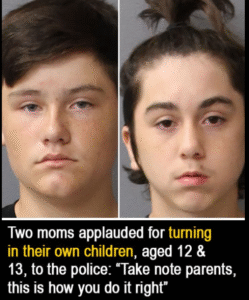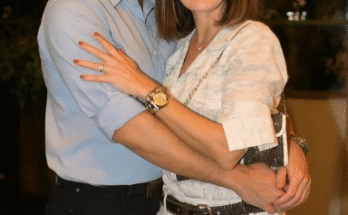Florida Moms, $50K in Damage, and the Courage to Call It In: A Story of Accountability
In Deltona, Florida, two mothers made a decision that reverberated far beyond their neighborhood. When they recognized their sons—aged 12 and 13—in surveillance footage released by the Volusia County Sheriff’s Office, they didn’t hesitate. They called the authorities. Their boys had broken into Friendship Elementary School, vandalized the media center, and caused over $50,000 in damage. The mothers didn’t shield them. They didn’t make excuses. They turned them in.
It’s a story that’s both shocking and quietly heroic. In an age where parental defensiveness often trumps accountability, these women chose integrity. They chose to uphold the values of community, responsibility, and consequence—even when it meant implicating their own children.
The incident itself was devastating. Deputies responded to a fire alarm at the school and found a scene of destruction: shattered glass doors, overturned tables, graffiti-covered walls, and books strewn like confetti across the floor. Surveillance footage revealed two boys entering the school during the day, returning later that evening to inflict further damage. The media center—a space meant to nurture curiosity and learning—had been transformed into a symbol of reckless disregard.
But the story didn’t end with the vandalism. It pivoted on the mothers’ response.
After the sheriff’s office released images of the suspects and asked for public assistance, the mothers came forward. They identified their sons, contacted authorities, and facilitated their confessions. The boys were subsequently charged with burglary, trespassing, criminal mischief, and theft.
In a world where viral videos often showcase parents berating teachers or defending indefensible behavior, these mothers stood apart. They modeled a kind of parenting that’s increasingly rare: one rooted in accountability, not image management. They didn’t ask, “How can I protect my child from consequences?” They asked, “How can I help my child face them?”
This act of courage deserves attention—not just because it’s unusual, but because it’s instructive.
Parenting is often described as a balancing act between love and discipline. But in moments like these, it becomes something deeper: a moral compass. These mothers understood that shielding their sons from the law wouldn’t protect them—it would harm them. It would teach them that actions have no consequences, that community trust is negotiable, that destruction can be dismissed.
Instead, they chose to teach a harder, more valuable lesson: that integrity means doing the right thing, even when it’s painful.
Their decision also sends a powerful message to the community. Schools are sacred spaces. They are where children learn not just math and reading, but empathy, cooperation, and respect. When those spaces are violated, it’s not just property that’s damaged—it’s trust. By turning in their sons, these mothers helped restore that trust. They showed that community accountability begins at home.
The sheriff’s office acknowledged the mothers’ role with gratitude, noting that public tips and parental cooperation were instrumental in resolving the case. But beyond law enforcement, the story resonated with parents, educators, and citizens across the country. It sparked conversations about what it means to raise children in a world where consequences are often blurred by privilege, denial, or fear.
There’s also a deeper emotional layer to this story. Imagine the heartbreak of recognizing your child in a video that shows them destroying a place meant to nurture others. Imagine the internal conflict: the instinct to protect versus the duty to correct. These mothers didn’t act out of anger or shame—they acted out of love. A love that understands discipline is not punishment, but preparation. A love that sees accountability not as betrayal, but as a gift.
And what of the boys? They confessed. They faced the charges. And now, they have an opportunity—however difficult—to learn from their actions. The justice system will determine their legal consequences, but the moral lesson has already been delivered. Their mothers didn’t abandon them; they guided them. They didn’t condemn them; they corrected them.
In many ways, this story is a microcosm of what community means. It’s not just about shared spaces—it’s about shared values. When those values are violated, healing requires honesty. It requires people willing to say, “This was wrong, and we will make it right.” These mothers did just that.
Their actions also challenge the narrative that accountability is punitive. In truth, it’s transformative. It’s what allows individuals—and communities—to grow. By facing consequences, the boys have a chance to understand the impact of their choices. By turning them in, the mothers have modeled a kind of strength that transcends punishment. They’ve shown that love is not permissive—it’s principled.
This incident will likely remain in the public memory for its dramatic visuals and staggering cost. But its deeper legacy lies in the quiet courage of two women who chose truth over comfort. Who chose to protect not just their children, but the integrity of their community.
In a time when headlines often highlight division, denial, and deflection, this story offers something different: accountability, empathy, and hope.
So yes, watch the bodycam footage. See the wreckage. Understand the gravity. But also, watch the mothers. Watch their resolve. Watch their love. Because in the end, they didn’t just call the cops. They called in a lesson. One that might just save their sons—and inspire the rest of us.



